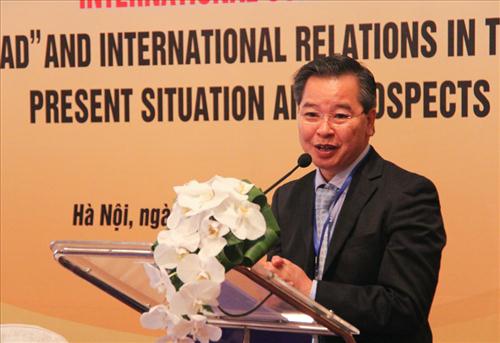
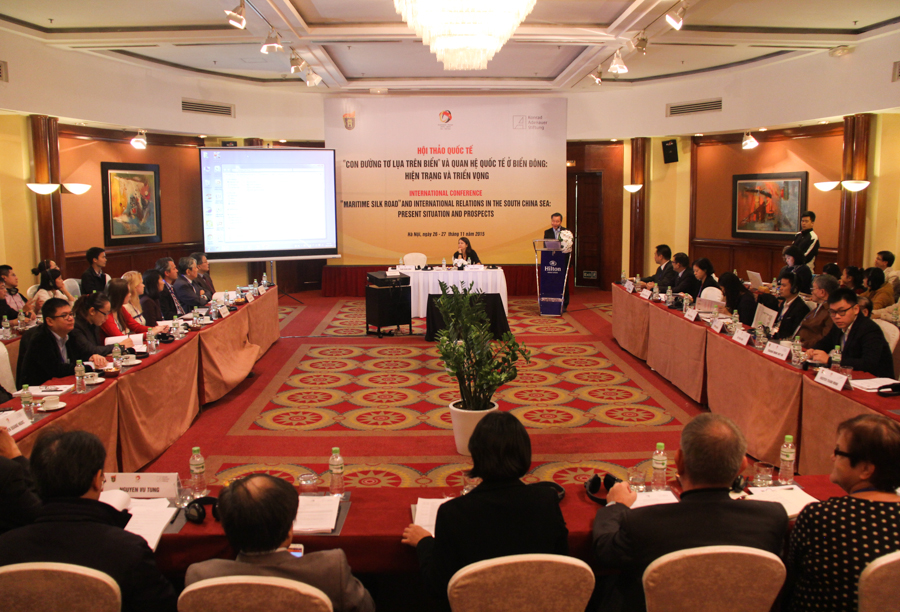
The International Conference held at the Hilton Hotel on November 26 and 27 attracted the attention of many domestic and foreign scholars as well as the press.
The scientific conference was attended by senior leaders such as Deputy Minister of Foreign Affairs Bui Thanh Son, Representative of the Embassy of the Federal Republic of Germany Mr. Hans-Jorrg Brunner. On the side of the organizing unit, there were Ms. Rabea Brauer (KAS Institute), Associate Professor Dr. Pham Quang Minh - Vice Rector of the University of Social Sciences and Humanities.
In addition, many famous scholars from home and abroad (USA, Japan, India, China, Philippines, Singapore, ...) attended such as Dr. Xue Li (Institute of International Economics and Politics, Chinese Academy of Social Sciences); Prof. David Arase (Johns Hopkins University); Prof. Seiichiro Takaji (Japan Institute of International Affairs); Major, Dr. Nguyen Thanh Minh (Coast Guard Command, Ministry of National Defense); Associate Professor, Dr. Nguyen Thi Lan Anh (Diplomatic Academy of Vietnam); ... with the attention of many domestic and foreign press.
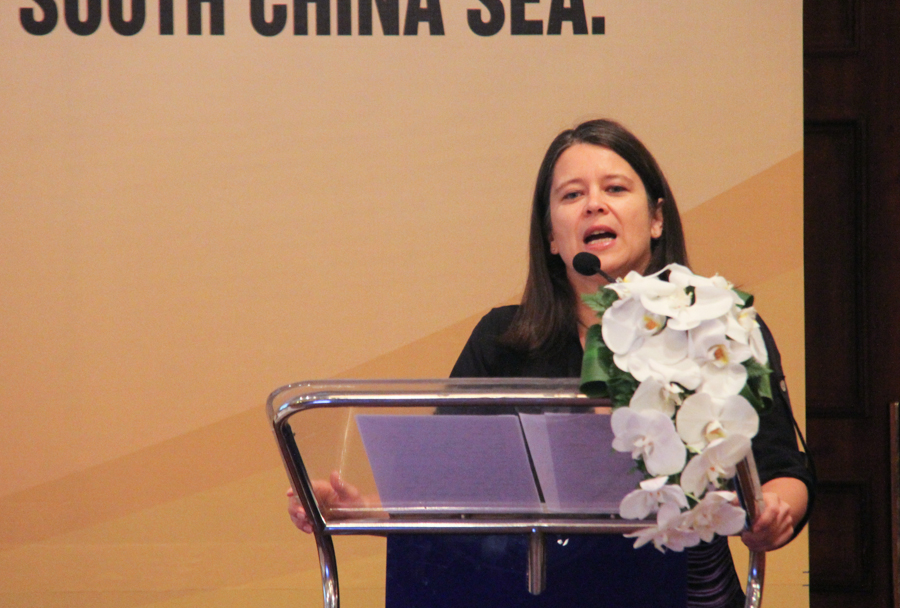
Ms. Rabea Brauer (KAS Institute) gave the opening speech at the workshop.
Speaking at the conference, Ms. Rabea Brauer said: “The conference on the “Maritime Silk Road” was organized by us last year. Today we continue to discuss its implications for the policy and security situation of each region. We have invited many leading speakers here and they will exchange with us their perspectives, current situation and prospects for security and politics in the region as well as the world”.
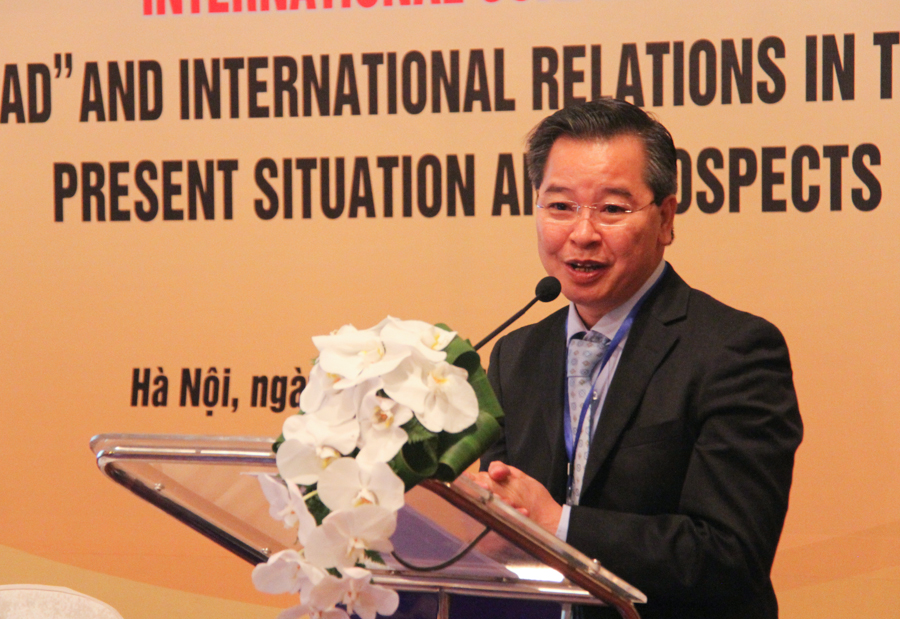
Assoc. Prof. Dr. Pham Quang Minh delivered the opening speech, emphasizing the importance of researching the "Silk Road on the Sea"
Meanwhile, Associate Professor Dr. Pham Quang Minh emphasized the direct impact of the “Maritime Silk Road” on Vietnam and the Southeast Asian region: “There have been major changes around ASEAN, the big question is what we can do to adapt to those changes. The rise of China is the most important reality with these changes.
“One Belt One Road” is the Chinese leadership’s vision to reach economies, quickly connect land and sea routes, connecting Asia with the Middle East and Europe. The rise of China affects the Strategy to restore world order; changes the appearance, the material change of China with the world and has an important impact on the situation in Asia.
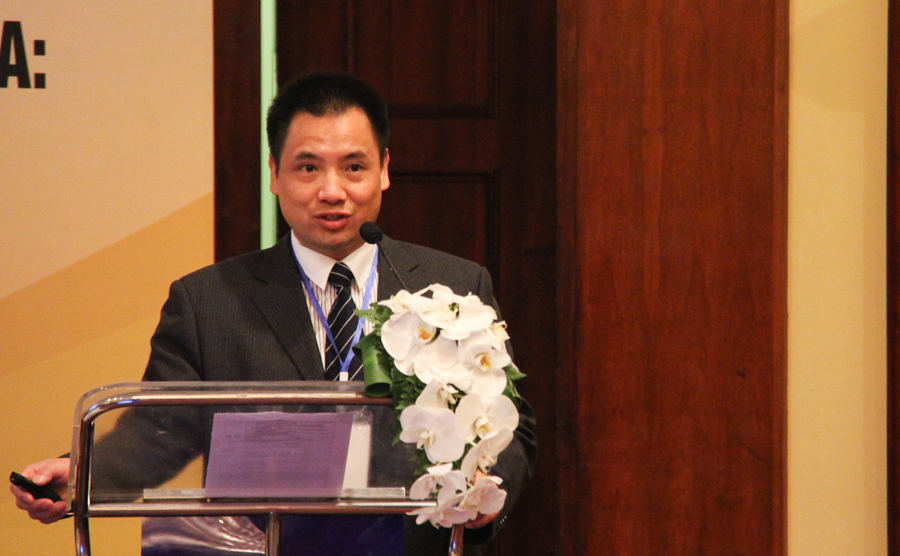
Dr. Xue Li presented the research “How does the Obor Strategy facilitate China-ASEAN cooperation?” on China’s One Belt One Road initiative
This morning (November 26), the workshop discussed the presentation “How does the OBOR strategy facilitate China-ASEAN cooperation?” by Dr. Xue Li, mentioning that the One Belt One Road (OBOR) strategy will be a “key plan” in China’s foreign policy in the next decade, of which ASEAN will likely be the first test.

Dr. Trinh Van Dinh presented the research "A historical approach to the origin of the maritime silk road" with a geopolitical approach and the expansionist ambitions of Chinese emperors.
And the presentation “A historical approach to the origin of the maritime silk road” by Dr. Trinh Van Dinh (University of Social Sciences and Humanities, VNU), approached the birth of the “silk roads” from a political perspective associated with the expansionist ambitions of Chinese emperors.
Both presentations opened a hot topic of debate among scholars, especially many questions were raised for Dr. Xue Li from the perspective of the relationship between Vietnam and China. In the spirit of academic exchange, the questions were answered with clear scientific bases.
Today the workshop has ended the first three sessions, tomorrow the remaining three discussion sessions will continue to be held.
Specifically the discussion sessions:
November 26, 2015:
- Session 1: Comments on China's "Maritime Silk Road"
- Session 2: Looking through the naval lens
- Session 3: Tensions in the East Sea
November 27, 2015:
- Session 4: ASEAN's viewpoints and stances
- Session 5: Viewpoints, positions and cooperation in the region
- Session 6: Roundtable – Current situation in diplomacy
Author:Hieu Luong
Newer news
Older news